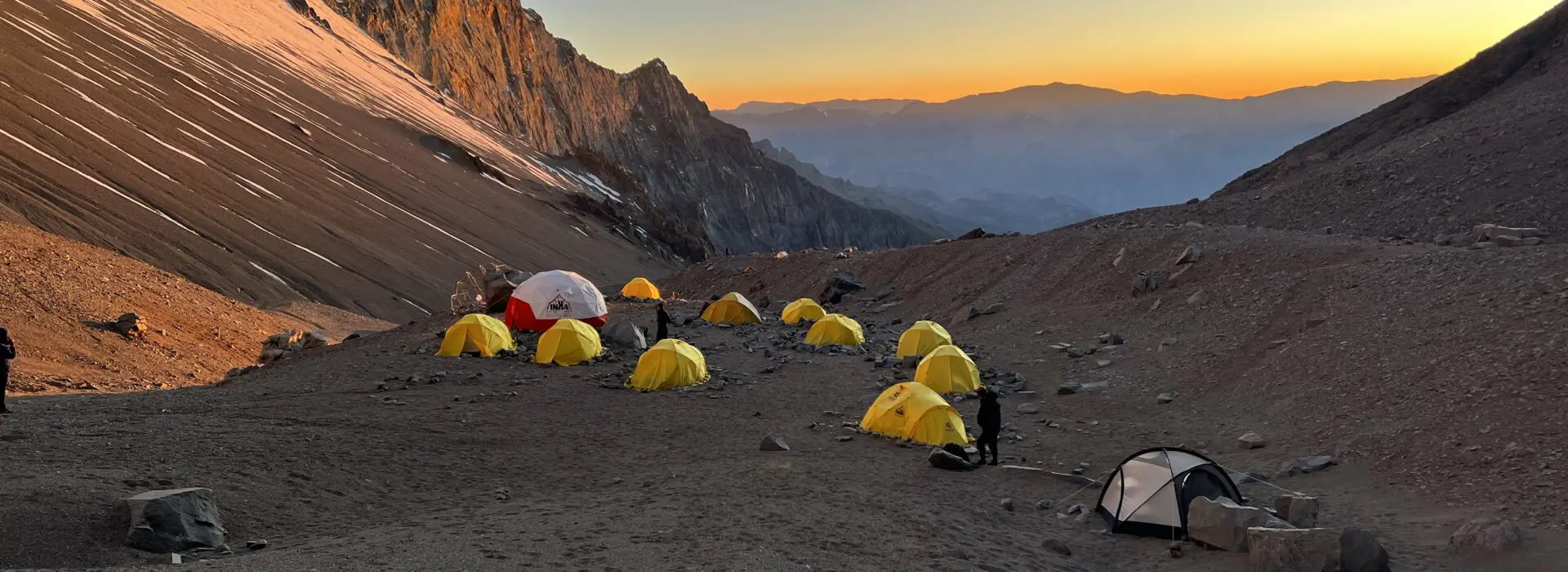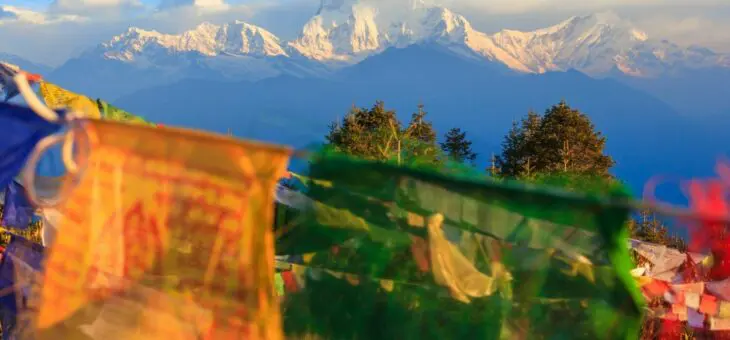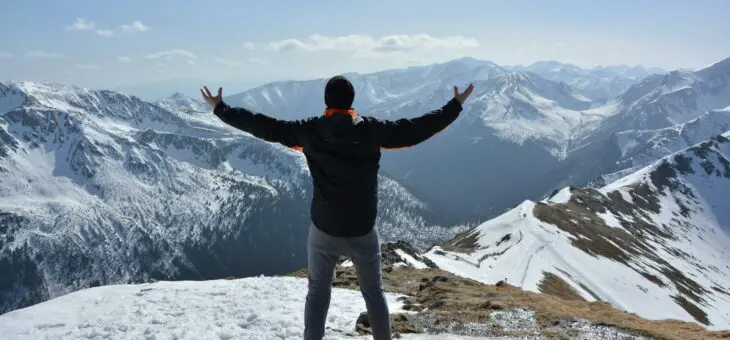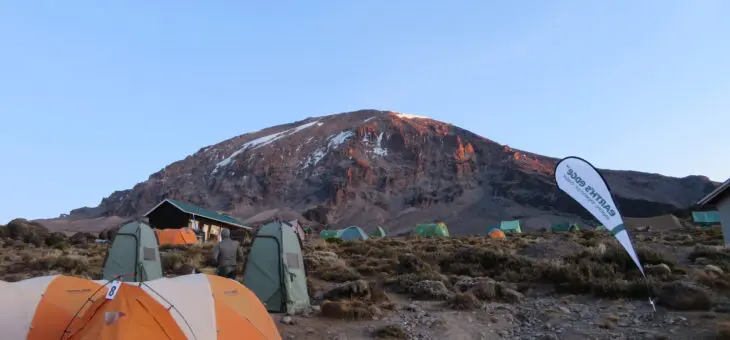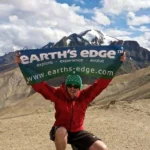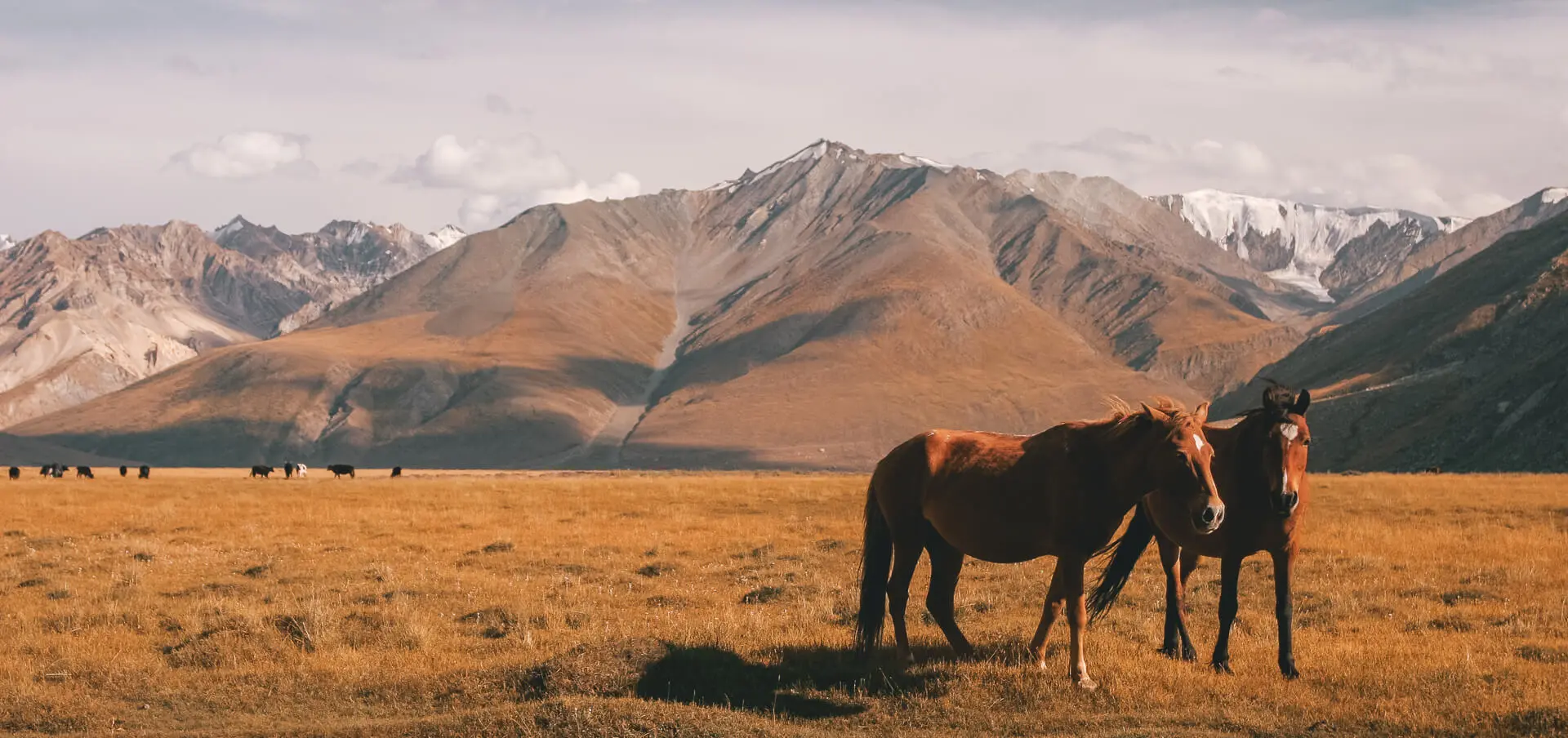Our Safety First Commitment on Every Expedition
At Earth’s Edge, safety isn’t an afterthought. It’s at the core of everything we do. We know that trekking at high altitudes comes with risks, and we take your safety seriously. That’s why we include a fully qualified expedition doctor on every one of our high-altitude treks as standard, from Kilimanjaro and Everest Base Camp to Machu Picchu and beyond.
While most trekking companies rely solely on guides or first aid responders, we go a step further, giving you direct access to medical care throughout your expedition.
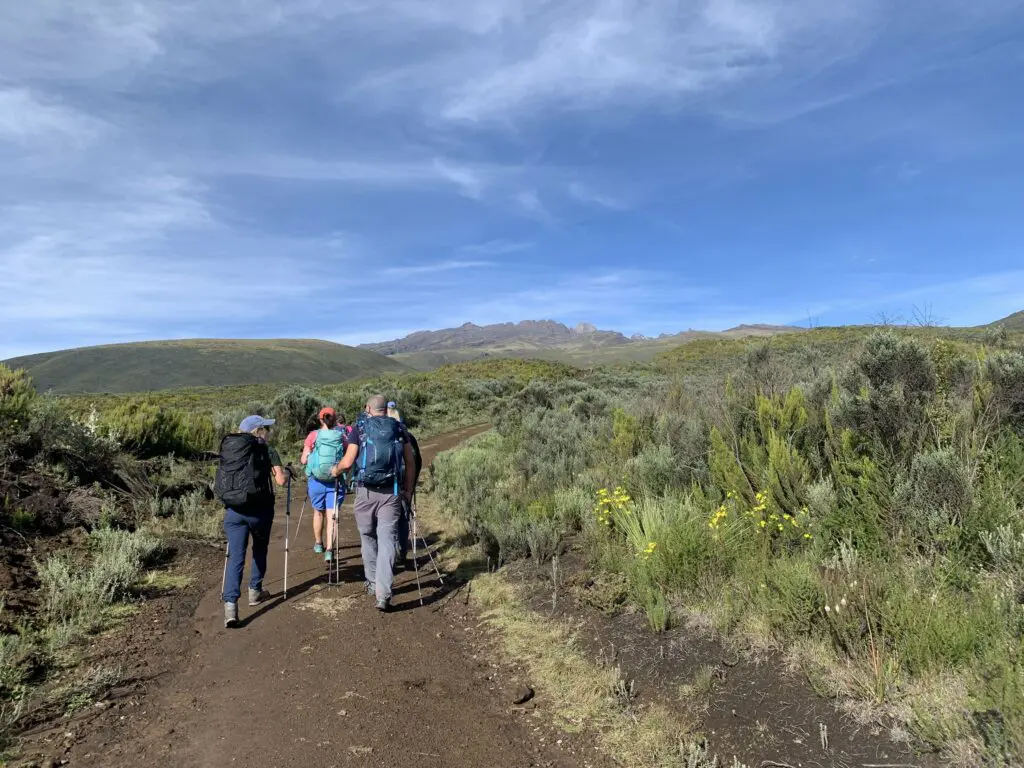
What Are the Risks of High-Altitude Trekking?
Trekking at high altitudes is an unforgettable experience, but it comes with real physical demands and health risks that must be managed carefully. As you climb above 3,000 metres, your body begins to experience the effects of reduced oxygen, and altitude-related illnesses can occur. This can sometimes come quickly and without warning.
High-altitude trekking can cause serious health issues if not managed properly. The main concerns include:
- Acute Mountain Sickness (AMS)
- High Altitude Pulmonary Edema (HAPE)
- High Altitude Cerebral Edema (HACE)
- Dehydration and exhaustion
- Injuries on the trail
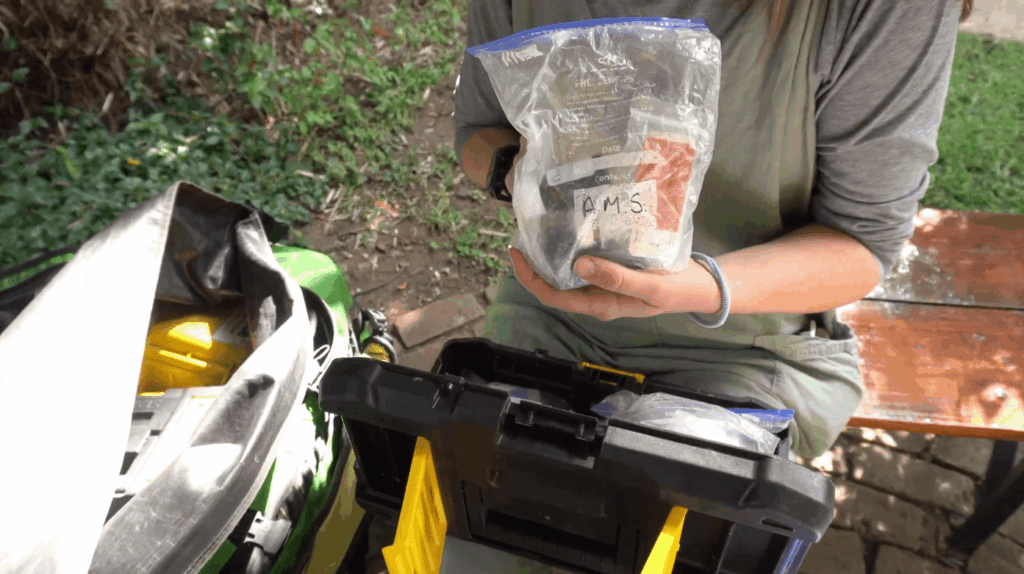
These are real risks, but with proper acclimatisation and expert medical support on hand they’re manageable, and rarely prevent trekkers from succeeding. Our expedition doctors are trained to identify these issues early and respond appropriately, helping to prevent mild symptoms from becoming serious.
Read more about dealing with altitude sickness
Why a Doctor on the Mountain Makes All the Difference
In remote environments, you can’t always rely on local clinics or fast evacuations. Having a doctor on the mountain means you have immediate access to expert medical advice and treatment, right when you need it. Whether it’s dealing with blisters, a sprained ankle, gastrointestinal issues, or altitude-related symptoms, our doctors are equipped to handle it.
Our teams also carry a full medical kit, far beyond the usual first-aid supplies, including oxygen, medication, and emergency equipment.
What Our Expedition Doctors Do on High-Altitude Treks
Our doctors are fully qualified medical professionals with specialist training in remote and expedition medicine. Their responsibilities include:
- Daily health check-ins
- Treating symptoms of altitude sickness
- Administering medication or oxygen if needed
- Managing injuries or emergencies
- Offering 24/7 medical support during the trek
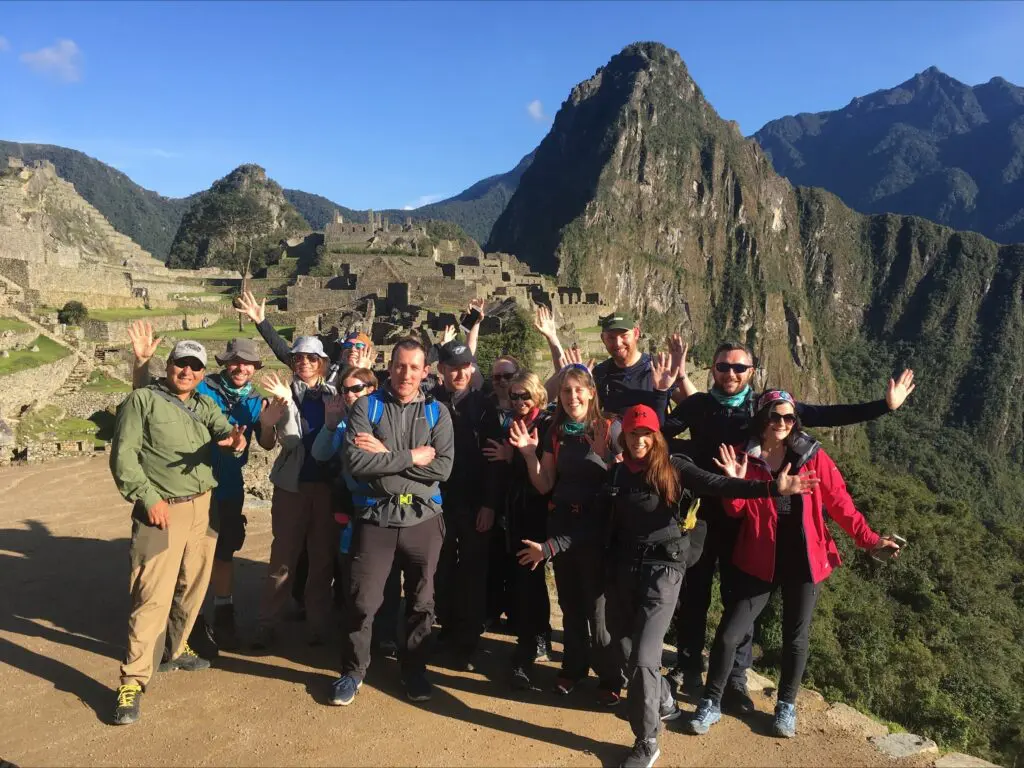
Proactive Medical Care Keeps You on Track
Our doctors don’t just respond to problems, they help prevent them. From daily health checks to expert advice on hydration, nutrition, and altitude sickness prevention, they’re there to guide you throughout the expedition. This proactive approach means more people reach their goals, and can focus on fully enjoying the journey along the way.
Of course, there are also things you can do to help prevent altitude sickness in the first place, including staying hydrated, eating well and pacing your high-altitude trek appropriately.
The Benefits of Trekking With a Doctor
We know that deciding to trek to a far-flung corner of the world can be daunting, especially if it’s your first time. Knowing that there’s a medical professional walking alongside you provides peace of mind. It reassures not only you, but also your friends and family back home.
Having a doctor on every trek gives you:
- Peace of mind – knowing a medical expert is always nearby
- Faster response – immediate care, even in remote settings
- Reduced risk – early detection and treatment of symptoms
- Stronger group confidence – knowing you’re in safe hands
It also lets you focus on enjoying the experience, while we take care of your health and safety.
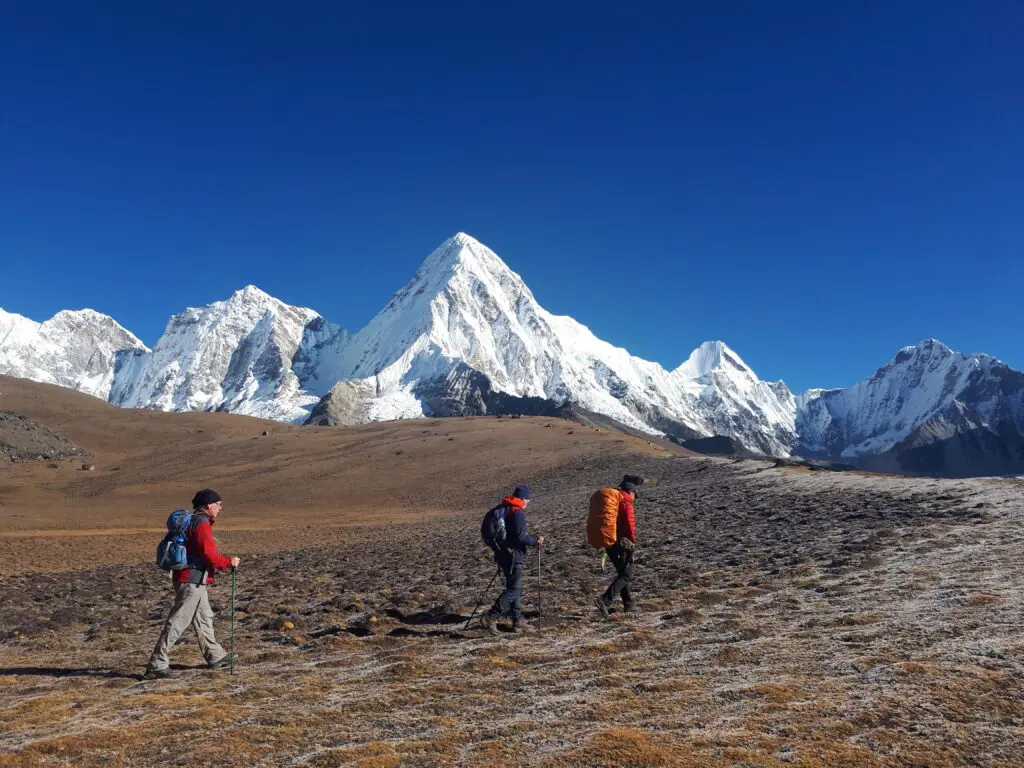
Why Don’t All Companies Do This?
Including a doctor on every trip is an investment, and isn’t standard practice in the adventure travel industry. Having a dedicated expedition doctor on every high-altitude trek is something that sets us apart. Most companies only include a medical presence on larger expeditions or as an optional extra. At Earth’s Edge, it’s a non-negotiable part of our commitment to quality, safety, and responsible travel.
We believe your health and safety are worth it. And for many of our clients, it’s one of the top reasons they choose Earth’s Edge.
Do I Still Need Travel Insurance?
Yes, we require all participants to have comprehensive travel insurance that includes high-altitude trekking and medical evacuation. The doctor is your first line of care, but insurance covers evacuation if needed.
What About My Own First Aid Kit?
While our doctor has an extensive medical kit, you do also need to bring your own small first aid kit. This should include your own (prescription) medications, preferred painkillers, plasters and the like. We recommend that you bring at least the following:
- Prescription medication
- Plasters / Compeed / KT tape
- Paracetamol / Ibuprofen
- Rehydration salts
- Buscopan
- Throat lozenges and nasal spray
- Decongestants – e.g. Sudafed
- Antibiotics suitable to treat traveller’s diarrhoea
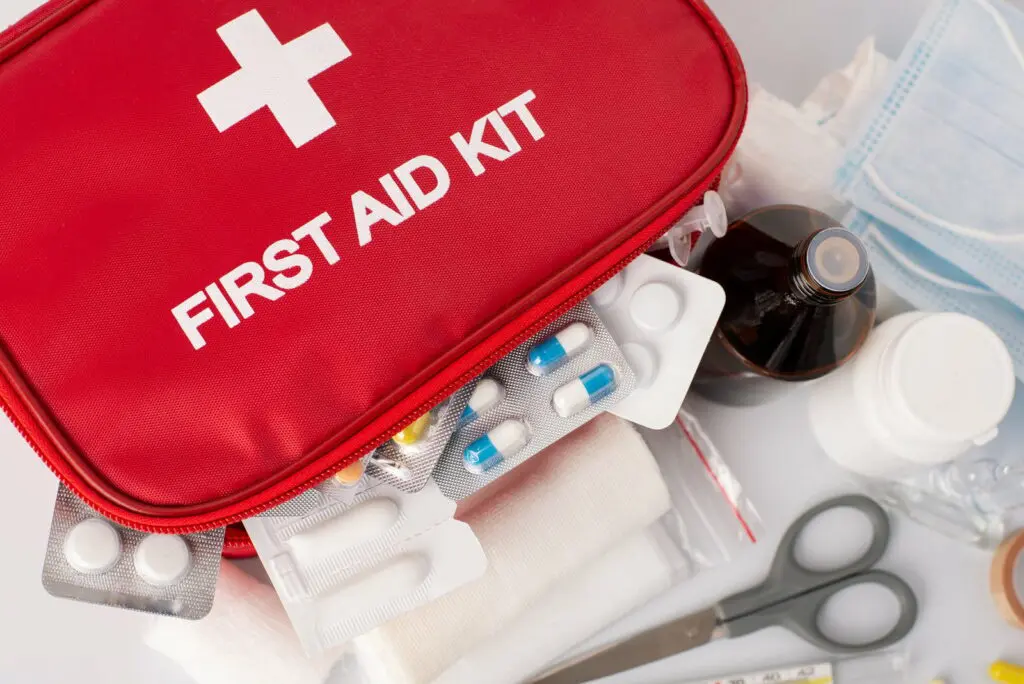
Trek with Confidence: A Safer, More Supportive Adventure
Trekking in remote, high-altitude regions is life-changing, but it’s not without risks. By including a dedicated doctor on every high-altitude expedition, we ensure that you have the highest level of support from start to finish. It’s just one of the many reasons why our clients trust us with their bucket-list adventures, and why so many of our clients recommend us to their friends and family.
Whether you’re heading to Kilimanjaro, Everest Base Camp, or the Andes, having a doctor on your trek means you’re safer, more supported, and more likely to succeed. This is just one of the ways Earth’s Edge goes above and beyond.
If you’re considering a high-altitude trek but feel unsure about the risks, talk to us. We’ll walk you through the journey, the support you’ll receive, and how our doctors help make the experience not just safer but better too.
Ready to trek with confidence? View Our Upcoming Treks
FAQ’s
Do I need to be fit to join a high-altitude trek with a doctor?
While our treks are physically demanding, our training weekends and support systems (including our doctors) are designed to help ordinary people achieve extraordinary things safely.
What kind of doctors join your high-altitude treks?
Our expedition doctors are registered, practicing medical professionals with additional wilderness and high-altitude training.
Has a doctor ever had to evacuate someone?
Yes, on occasions our expedition leaders and doctors have made evacuation decisions to keep clients safe. But in many cases, early treatment prevents issues from escalating.
Do other trekking companies include doctors?
No, most trekking companies don’t include a dedicated expedition doctor on standard trips. At Earth’s Edge, it’s part of our commitment to exceptional safety.
